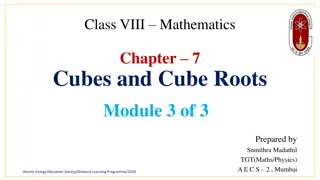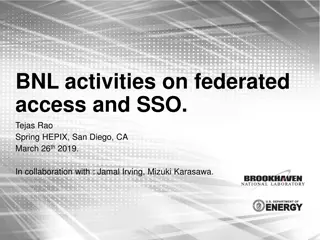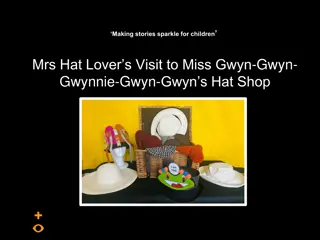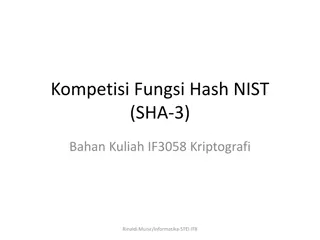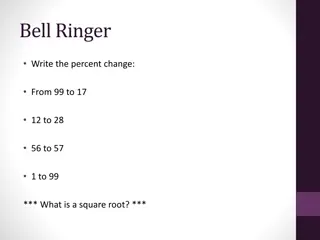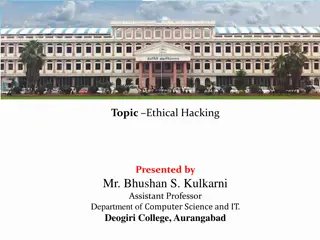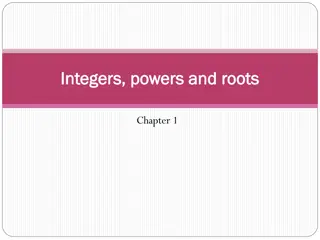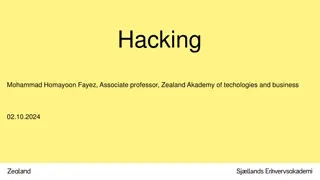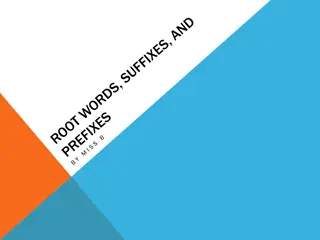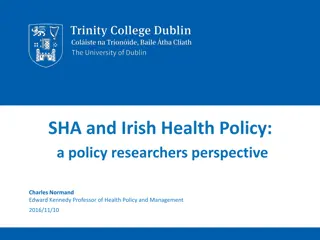Red Hat 9+ and the Issue of SHA-1 Roots
We know SHA-1 is no longer secure as a crypto digest, impacting projects and distros that deprecate it for self-signed certificates. Explore how RHEL9+ treats SHA-1 certs differently and the impact on trust locations. Discover insights on the CA certificates package in RH9 and the challenges faced with dual-blob mode in OSG experiments.
Download Presentation

Please find below an Image/Link to download the presentation.
The content on the website is provided AS IS for your information and personal use only. It may not be sold, licensed, or shared on other websites without obtaining consent from the author.If you encounter any issues during the download, it is possible that the publisher has removed the file from their server.
You are allowed to download the files provided on this website for personal or commercial use, subject to the condition that they are used lawfully. All files are the property of their respective owners.
The content on the website is provided AS IS for your information and personal use only. It may not be sold, licensed, or shared on other websites without obtaining consent from the author.
E N D
Presentation Transcript
David Groep Update: RedHat 9+ and the issue of sha-1 roots October 2023
Although it conceptually makes no sense We know SHA-1 is no longer secure as a crypto digest all EECs and ICAs moved away ages ago but some projects and distros are uselessly deprecating SHA-1 for self-signed (root) certificates where the signature is immaterial This affects at least FF103+ RHEL9+ (and rebuilds) yet in the cases we could find it only applies to CA certs that are not in the WebPKI (and distro) public trust list This impacts both joint-trust and igtf-only trust when installed in a non-system location. But thy system locations are different is not obvious from the doc
Rocky9+, AlmaLinux9+, RHEL9+ and With RHEL9 also deprecating SHA-1, but at the same time still having self-signed SHA-1 based root certs in the ca-certificates package, unknown why that distribution treats SHA-1 certs in the X509_CERT_DIR differently At least there is a policy override for now update-crypto-policies --set DEFAULT:SHA1 even if that is a rather course-grained tool (and do not pick LEGACY) 3
The ca-certificates package in RH9 Interestingly, EL9 does ship with a lot of SHA-1 root CAs in ca-certificates-2022.2.54-90.2.el9.noarch.rpm and the p11-kit sources thereof (and thus e.g. /etc/pki/tls/certs/ca-bundle.crt) contain SHA-1 self-signed roots that do work on EL9. this relies on the OSSL proprietary trust bytes in a BEGIN TRUSTED CERTIFICATE blob such blobs allow SHA-1 for self-signed roots, but are not standarised Yet the simple solution, to ship both the EL/OSSL proprietary trust bytes as well as a regular PEM formatted root does not work (thanks to Brian Lin for testing that!) 4
The OSG experiment OSG shipped the dual-blob mode for a few days using something like https://www.nikhef.nl/~davidg/tmp/make-trusted.sh first a BEGIN TRUSTED CERTIFICATE , then in the same file BEGIN CERTIFICATE However, it broke: CANL-Java, extending BouncyCastle, cannot process this blob and will balk even if it does not recognise it (https://stackoverflow.com/questions/55550299/java-can-not-load-begin-trusted-certificate-format-certificate) open as a dCache Feature Enhancement on CANL Java by Paul Millar will not be fixed overnight, of course. And we my find other issues thereafter 5
Mitigations? Meanwhile, if you still have a SHA-1 root and you are able to re-issue with the same key (and new serial) and your EECs do not have dirname+serial in their AKI your CAs should probably re-issuing its root because that is easier. But for the large ones, esp. the DigiCert Assured ID Root from 2006 for instance, that will be hard. And migrating to another (SHA-2 rooted) signing hierarchy will take at least 395 days ... and a lot of engineering on the RP and CA side The root cause is with RH not understanding what a self-signed trust anchor is, but that will not help us in the short term. 6
Reissuance of roots? ASGCCA-2007 BYGCA CNIC DZeScience DigiCertGridRootCA-Root KEK MARGI RDIG SRCE TRGrid ArmeSFo CESNET-CA-Root DFN-GridGermany-Root DigiCertAssuredIDRootCA-Root IHEP-2013 LIPCA QuoVadis-Root-CA2 RomanianGRID SiGNET-CA seegrid-ca-2013 Fixed by now: GridCanada, CILogon basic/silver/OpenID, UKeScienceRoot-2007 Removed: DigiCertGridCA-1-Classic, DigiCertGridTrustCA-Classic Will be discontinued soon: GermanGrid (GridKA) 7
Discussion what can you do? 8
David Groep davidg@nikhef.nl https://www.nikhef.nl/~davidg/presentations/ https://orcid.org/0000-0003-1026-6606 Event





